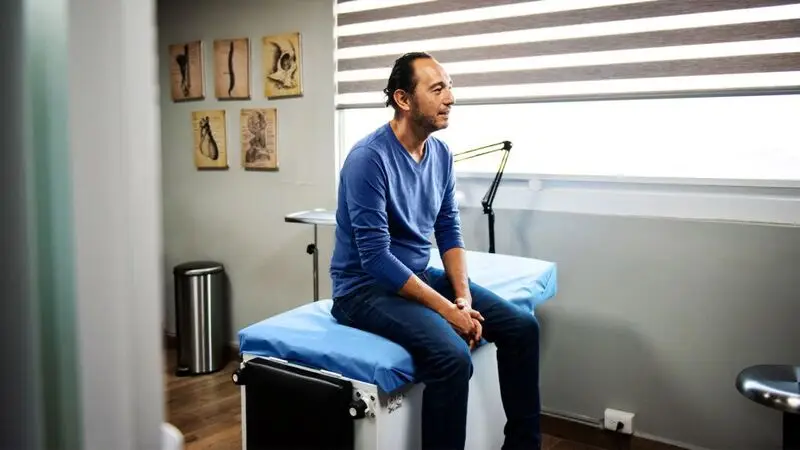
- The brain cancer glioblastoma affects about 3 in every 100,000 people around the world each year.
- Glioblastoma is difficult to treat, and people with this condition have an average survival length of approximately 1 year.
- Researchers from the University of Florida have developed a new mRNA cancer vaccine to retrain the body’s immune system to attack and potentially treat glioblastoma.
Glioblastoma is the most common type of brain cancer, affecting about 3 in every 100,000 people globally each year.
Recent research shows that glioblastoma incidence is
Glioblastoma is a challenging cancer to treat and has an average five-year survival rate of 6.9%.
Now, researchers from the University of Florida have developed a new mRNA cancer vaccine to retrain the body’s immune system to attack and potentially treat glioblastoma. The results of this study were recently published in the journal Cell.
“Glioblastoma is the most common malignant brain tumor, and despite the boon in medical innovations, outcomes have not precipitously changed in decades,” Elias Sayour, MD, PhD, the Stop Children’s Cancer/Bonnie R. Freeman Professor for Pediatric Oncology Research in the Departments of Neurosurgery and Pediatrics at the University of Florida and lead author of this study told Medical News Today.
“Our brain tumor program has developed promising effects with other forms of immunotherapy against brain cancer and wanted to test a novel mRNA vaccine design to enhance responses for these difficult-to-treat diseases,” Sayour added.
Ever since the mRNA vaccines were developed to fight the coronavirus, scientists have been studying their use for the treatment of other conditions, including cancer.
In this study, researchers used study participants’ own tumor cells to create a personalized vaccine for their particular cancer.
“mRNA is the information from our genetic code that is turned into protein: the hardware that makes each of us — and each cancer — unique,” Sayour explained.
“By targeting the unique mRNA repertoire of a patient’s cancer, we can make exquisitely personalized vaccines unique to individual tumors in a manner that is feasible and commercializable to all.”
The study evaluated the impact of the new mRNA vaccines by testing 10 pet dogs who had natural brain tumors and were enrolled in the study by their owners because they had no other treatment options.
Dogs treated with the mRNA cancer vaccine lived an average of 139 days, compared to the average 30- to 60-day survival rate for dogs with the condition.
After animal tests, the scientists expanded their research to a small FDA-approved clinical trial of four human study participants with glioblastoma.
After receiving the mRNA vaccine, researchers reported that in less than 48 hours, they were able to observe brain tumors moving from a “cold” silenced immune response to a “hot” active immune response.
“This is significant because it usually takes time — weeks to months with boosters — for vaccines to begin working,” Sayour said. “We expect this work to create a new paradigm that rapidly activates the immune system against cancer.”
“To win the war on cancer, the immune system needs a better head start. We hope this approach gives the immune system the head start it needs to win the race against rapidly evolving tumors. By getting rapid responses from a single vaccine, the immune system can be rapidly reprogrammed to fight cancer.”
— Elias Sayour, MD, PhD, lead study author
Scientists said that while it is still too early to assess the clinical effects of the mRNA cancer vaccine, they did report that human study participants receiving the vaccine either lived disease-free longer than expected or survived longer than expected.
The researchers also stated the small clinical trial of four participants helped demonstrate early safety and feasibility before expanding to a larger clinical trial.
“We must validate these findings in (a) larger cohort of patients, identify a maximally tolerated dose, and begin phase II trials,” Sayour said.
“We are also moving aggressively to launch this platform against pediatric brain tumors.”
Wael Harb, MD, a board certified hematologist and medical oncologist at MemorialCare Cancer Institute at Orange Coast and Saddleback Medical Centers in Orange County, CA, told MNT that as glioblastoma is a very difficult cancer to treat, doctors are in need of new treatments. Harb was not involved in the study.
“The overall strategy is very interesting using the systemic immune response while reprogramming the tumor microenvironment is very promising — and in the larger context of immunotherapy research, I think this is a really exciting approach,” Harb said.
“The next step would be [a] well-designed clinical trial looking at the safety and efficacy in a more diverse patient population to really understand how these RNA-LPAs (RNA lipid-particle aggregates) work in reprogramming the tumor microenvironment. “I would love to see, in addition to safety efficacy data, biomarkers to show that this is happening.”
— Wael Harb, MD, hematologist and medical oncologist
“To me, this is a way of educating the immune cells [on] how to fight cancer,” Harb continued.
“I think the crucial step would be to proceed with that to see the result of the early phase clinical trial — is that translating into what is the safety and efficacy, (and) are the biomarkers (that) we’re seeing in humans correlating to what we saw in animal studies,” Harb noted.
Jose Carrillo, MD, a board certified neurologist and neuro-oncologist at Pacific Neuroscience Institute and associate professor of neurology at the Saint John’s Cancer Institute at Providence Saint John’s Health Center in Santa Monica, CA, not involved in the study, told MNT his initial reaction to the findings was one of “cautious optimism.”
“This study describes a novel technique for inducing an immune response in glioblastoma, which has been notoriously difficult to obtain significant advances in survival with immune therapies and clinical trials. I remain positive, however, based upon studies like these, that steady progress is being made in unraveling new discoveries that will get (us) one step closer to better treatments for our patients.
— Jose Carrillo, MD, neuro-oncologist





